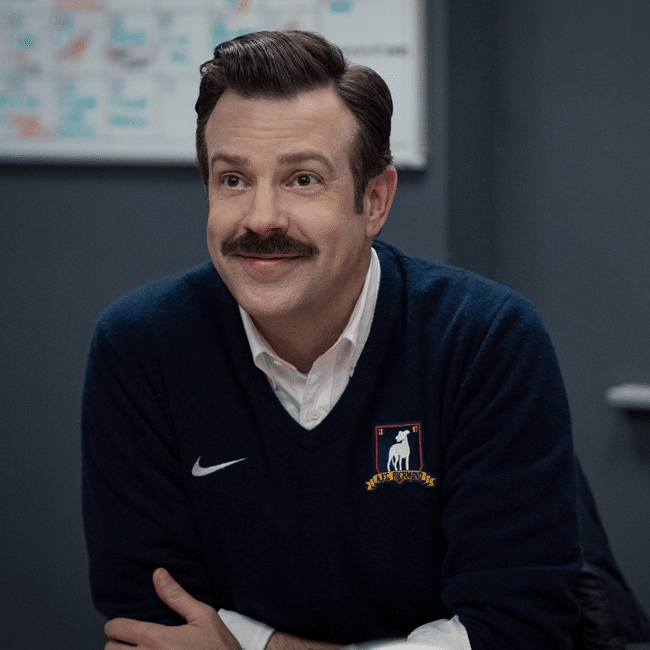Schools of thought: What is education for?

Schools of thought: What is education for?
Opinion + AnalysisSociety + Culture
BY Georgia Fagan 3 OCT 2024
Education is often seen as an economic investment in our future. But philosophers have argued it could be so much more than this.
Education is often seen as a tool that we use to get us other things that we want; we tend to value education instrumentally. We know that the higher our educational attainment, the higher our future income, and most of us see this increase in future economic value as one of the central values of education. We understandably see greater financial security as a means to achieve greater happiness, a way to avoid stress and enjoy a greater sense of freedom and agency in our lives.
But what else could education be for that it seemingly isn’t for at the moment? What other value could it have for ourselves and the communities in which we are embedded?
Many people believe that economic instrumentality shouldn’t overshadow other potential goals of education. Philosopher Martha Nussbaum writes:
“We are living in a world that is dominated by the profit motive. The profit motive suggests to most concerned politicians that science and technology are of crucial importance for the future health of their nations… my concern is that other abilities, equally crucial, are at risk of getting lost in the competitive flurry, abilities crucial to the health of any democracy internally and to the creation of a decent world culture.”
Nussbaum is concerned that a failure to sufficiently interrogate what systems of education should be used for, leaves those systems vulnerable to a corporatisation that neglects their more comprehensive capacities.
Social critic Henry Giroux echoes these concerns, saying:
“You can’t have a democracy without informed citizens. That’s why education has to be at the centre of any discourse about democracy, and it isn’t. That’s where the left has failed. It has failed to run education. They failed because they believe that the most important structures of domination are entirely economic…”.
In 2027 the NSW primary school curriculum will undergo its biggest change in 30 years. Amongst this will be a new focus on democratic roles and the history of voting. Teaching students about democratic systems is useful, but it’s not enough. We must also teach them to interrogate their own beliefs and deliberate with others whose beliefs differ from their own. This is a skill which Nussbaum calls Socratic self-criticism. She describes it as “the ability to transcend local loyalties and to approach world problems as a ‘citizen of the world’; and, finally, the ability to imagine sympathetically the predicament of another person”.
For Nussbaum (and Socrates) education should aim to create citizens who are skilled in thinking for themselves, in reasoning well alone and with others. Similarly, Giroux thinks education should make individuals “aware of their own cultural capital… and their place in the world”. Nussbaum and Giroux both argue that education should not only give students what they need to lead economically comfortable lives, but also ensure that these lives are self-aware, and meaningfully engaged with the world around them.
Both theorists begin to suggest ways in which their theories can be made into practice. Giroux emphasises the need to engage students in discussions and forms of thinking that allow them to consider their own narratives about the world. This requires understanding the ways in which they are situated within it, and how that situatedness may differ from those around them.
This idea echoes Nussbaum’s argument that education should teach students to think critically about their own traditions. Both these proposals require curriculums that directly consider the perspectives of other people and cultures to stimulate critical self-reflection. Questions like: “what do I believe in and what are my reasons for those beliefs?”, “what do I think of the alternative beliefs?”, and finally, “do I or do I not want to change my thinking in this instance?”.
The development of aspects of Socratic self-criticism already exists as a byproduct of education curriculums, but Nussbaum and Giroux are motivating us to consider what it would look like to bring these aims to the centre of schooling. An example may be through the inclusion of a core subject concerning ethical deliberation. The best preliminary example of this sort of subject may be the Primary Ethics subject model. Currently, this is an hour long, weekly class carried out as an opt-in secular alternative to special religious education in NSW primary and secondary schools.
Any such subjects should not be forged as tools to impart ethical dogmas onto young students. Instead, they should be spaces for developing critical thinking skills which arise from debate and deliberation with existing perspectives and counter perspectives.
Education is a hugely powerful system, one which we should thoroughly and frequently interrogate. Are we using this system in a way that aligns with our goals, both local and global? What are those goals, have they recently changed? Are we equipping an entire generation with the tools they require to live comprehensively fulfilling and meaningful lives? The possibilities for our educational systems are boundless and it’s time that we begin realising this.

Ethics in your inbox.
Get the latest inspiration, intelligence, events & more.
By signing up you agree to our privacy policy
You might be interested in…
Opinion + Analysis
Relationships, Society + Culture
Those regular folk are the real sickos: The Bachelor, sex and love
Big thinker
Politics + Human Rights, Society + Culture
Big Thinker: Audre Lorde
Opinion + Analysis
Society + Culture
Save the date: FODI returns in 2020!
Opinion + Analysis
Relationships, Society + Culture
The #MeToo debate – recommended reads
BY Georgia Fagan
Georgia has an academic and professional background in applied ethics, feminism and humanitarian aid. They are currently completing a Masters of Philosophy at the University of Sydney on the topic of gender equality and pragmatic feminist ethics. Georgia also holds a degree in Psychology and undertakes research on cross-cultural feminist initiatives in Bangladeshi refugee camps.
Where is the emotionally sensitive art for young men?

Where is the emotionally sensitive art for young men?
Opinion + AnalysisSociety + CultureRelationships
BY Joseph Earp 23 SEP 2024
The Sisterhood of the Traveling Pants, the 2005 young adult drama film, takes all of five minutes to set up its premise: what if you and your friends discovered the titular pair of jeans, which, despite your differences in size, fit you all perfectly? And, more than that, what if you all decided that these pants had magical behaviour-changing powers?
So far, so teen drama, particularly when the film starts unveiling the emotional canvas the film will play out on. Bridget (Blake Lively) has a crush, and a dead mother; Carmen (America Ferreira) is a child of divorce; Tibby (Amber Tamblyn) is stuck working a dead-end job.
But what is extraordinary about the film is the sensitivity with which it handles what could otherwise be tropes. Each of the heroine’s lives is disrupted by death and loss. They learn they are fallible; that they are subjected to forces they cannot control. They’re not whiny teenagers. They’re young people, making their way through the world – sometimes messily, but always with conviction.
The film is shockingly emotionally nuanced for a work of art made for, and about, teenagers. But what makes it more shocking is how plainly it exposes the absence of similar art for young men. The Sisterhood of The Traveling Pants – and films like it – are a core part of moral education, designed to validate young women in their feelings, both the positive and the negative. So, where is the male equivalent?
Art and moral education
None of this is to say that The Sisterhood of The Traveling Pants need only appeal to young women – the brush with which it paints is broad and vivid enough for those of any gender. But it still remains the case that the film was marketed to, and largely consumed by, young women. It sits alongside Stick It, She’s The Man, Riding In Cars With Boys, and Cinderella Story as part of an early 2000s trend of emotionally adult works directed towards young women. While these are stories are ostensibly about romance, they’re actually about self-discovery and self-possession.
Such films, as philosopher Greta T. Cullen observes, need not necessarily be “morally instructive” – as in, they don’t need to have all the moral answers. Instead, they ignite sympathy. They teach us both about our own world, and the worlds of those around us. As Cullen puts it, they “encourage an awareness of other people, their problems and sufferings.” Through that awareness, we can build a proper moral system – after all, it’s only when we understand how we affect other moral agents that we can decide how to treat them.
That, in fact, is precisely what makes art so important in moral education. The Sisterhood of the Traveling Pants isn’t prescriptive – it doesn’t tell us exactly what we should do. In fact, its heroines make more mistakes than most: Tibby, whose life is changed by a young girl with cancer, initially declines to visit her dying friend in hospital. The film isn’t an instruction guide. Instead, it’s a sort of training ground for sympathy, reminding us of the impact we have on each other – and the seriousness with which we should take that impact. Art, at its best, makes the world bigger. And after it has done that, we get to decide what to do with all that extra space.
The stoic male hero
Art targeted at young men is far less interested in interiority. Consider the likes of Deadpool, Top Gun: Maverick, and The Fast and The Furious films. These works of art are not interested in emotional nuance in the same way as The Sisterhood of the Traveling Pants is, because they’re not centred around emotionally changeable characters. Neither Deadpool nor Dominic Toretto need overcome internal obstacles – only external ones.
Art for young men tends to promote stoicism or, at the very least, inflexible leading men. Leads of young adult films directed at men are primarily unflappable – above all else, they value calm, and decisiveness. They are what Jon Brooks describes as “stoic superheroes”.
That’s not to say such art needs to be entirely dismissed – it has other uses. But the hole in male education around emotions – what we do with them, how they shape us – has profound knock-on effects.
When your heroes don’t validate you in your emotional complexity – in your essential fallibility – your moral life suffers. There is a loneliness to growing up without seeing a complex inner life on the screen. Films should, in some complicated way, forgive us. They should make it clear that we are not alone.
That loneliness is solidified by a further absence in young male cinema – a hole where there should be depictions of non-judgmental, accepting friendships. The “buddy comedy” genre does aim to rectify this gap, but such films are few and far between. The Sisterhood Of The Traveling Pants models genuine connection between its heroes, who are willing to be their true selves around each other. There is no real corollary for men.
There’s a sequence part way through The Sisterhood of the Traveling Pants where Tibby, the teenage shelf-stacker, steps out into the quiet of the afternoon, surrounded by her middle-aged co-workers as they smoke in the sun. She says nothing; they say nothing.
Later, this will become the setting where Tibby learns not just about loss, but also about the hard-won work required to give life meaning. For the moment though, all that happens is that Tibby stands there, the sky orange around her, and takes pause. It’s a moment of true emotional vulnerability – a brief flash of Tibby sitting in her feelings.
And that vulnerability is important. Without that vulnerability, genuine emotional connection is impossible. Which is why the dearth of such moments in art aimed at young men has such worrying implications. Many men struggle with their own vulnerability; struggle to feel authentic, and true. From that comes loneliness. From that comes pain.
There is a hole in male education, and it’s shaped exactly like this film. And, more specifically, a hole shaped like the image of a young woman, standing in the sunshine, staring straight ahead, and then slowly walking offscreen.
Image: Warner Bros. Pictures

Ethics in your inbox.
Get the latest inspiration, intelligence, events & more.
By signing up you agree to our privacy policy
You might be interested in…
Opinion + Analysis
Society + Culture
Ethics on your bookshelf
Opinion + Analysis
Health + Wellbeing, Relationships
Pop Culture and the Limits of Social Engineering
Big thinker
Politics + Human Rights, Relationships
Big Thinker: Eleanor Roosevelt
Opinion + Analysis
Relationships
Why learning to be a good friend matters
BY Joseph Earp
Joseph Earp is a poet, journalist and philosophy student. He is currently undertaking his PhD at the University of Sydney, studying the work of David Hume.
Ask an ethicist: Is it OK to steal during a cost of living crisis?

Ask an ethicist: Is it OK to steal during a cost of living crisis?
Opinion + AnalysisSociety + Culture
BY Tim Dean 17 SEP 2024
The cost of groceries is spiralling out of control. Meanwhile, the major supermarkets are making a killing. I can barely afford the fuel to get to work, let alone fresh food for dinner. Surely, it’s OK for me to pilfer the odd packet of beef patties or punnet of strawberries?
It sometimes feels like the grand bargain of society is breaking down. We’re told that if we work hard, get a good education and don’t cause trouble then things will all work out – we’ll get a good job, be able to buy a home and we can still afford the odd luxury. But many of us are discovering that even when we play by the rules, we still feel like we’re falling behind.
And then we see the price of asparagus has gone up again. It’s not like asparagus farmers are getting rich. Neither are we. But the supermarket duopoly is. The outrage at this apparent injustice is understandable. And some of that outrage is tipping over into shoplifting, with the big supermarkets registering a surge in theft.
But – brace yourself – as an ethicist, I’m going to remind you that stealing is wrong. Well, it’s almost always wrong, especially if you’re only stealing out of a sense of outrage.
The thing about outrage is that it demands satisfaction. It motivates us to punish a perceived wrongdoer. But whom do we punish when the wrongdoing isn’t perpetrated by an individual but by an unjust system? It might feel justified to place a finger on the scale to tip things back in our favour by nabbing a few essentials (and the odd packet of TimTams). But in doing so, we risk letting one injustice lead to another without actually tackling the problem in the first place. We might feel like we deserve fairer prices – and I think we do – but stealing isn’t the way to make that happen.
But surely pilfering a couple of peaches and a jar of pickles is a victimless crime. The big supermarkets are making a motza, and they factor theft into their bottom line. That’s a trifling loss for them, and a nice peach and pickle cocktail for me.
Here’s a pickle for you. While a single instance of shoplifting might not have a big impact, every instance adds up. Because supermarkets do factor in theft to their prices, the more stuff that goes missing, the more they jack up prices – not to mention investing more in anti-theft technology. So, you’re in part contributing to the very problem that is motivating your theft. And those higher prices impact everyone, including those who might be struggling even more than you are.
At the heart of ethics is the idea that we should take responsibility for our actions. Do you want to be responsible for making the cost of living crisis worse?
Then there’s the matter of principle. Every time you feel justified stealing, you’re allowing others to use that same justification to steal. You’re effectively endorsing stealing in general.
One missing pickle jar might not make much of an impact on prices, but if everyone swipes something, then pickles can pretty quickly become out of reach.
OK, OK. I’ll redirect my outrage to writing sternly worded letters to the newspaper about grocery prices. But what if I’m starving because I can’t afford even a packet of Kraft singles to get through the day? Is stealing justified then?
As I said earlier, stealing is almost always wrong. But not always. Mortal peril is one case where most ethicists would say that it’s permissible to steal. Say your child is dying of a preventable disease and needs medication immediately, but your local supplier jacks up the price to an unaffordable level at the last moment and refuses to make an exception. If there’s no other ethical way to save your child’s life, then stealing could be forgiven.
However, that doesn’t mean raiding the lolly aisle. Note the “no other ethical way” bit. Generally, we’re obliged to do everything we can to work within the bounds of ethics and the law before we step outside of them. So, if you’re struggling to afford food, and there’s a food bank nearby that is willing to help you out, then that’s where you ought to turn before stuffing celery down your jumper.
Similarly, if there were some perverse law that prevented you from legitimately buying necessities, then you could pull a Martin Luther King Jr and ignore that law. As he said:
“One has not only a legal, but a moral responsibility to obey just laws. Conversely, one has a moral responsibility to disobey unjust laws.”
In short: stealing is bad, unless stealing will prevent something worse from happening. If not, then leave that punnet of strawberries alone and save your stamina for fighting the unjust system in other ways.

Ethics in your inbox.
Get the latest inspiration, intelligence, events & more.
By signing up you agree to our privacy policy
You might be interested in…
Explainer, READ
Relationships, Society + Culture
Ethics Explainer: Shame
Opinion + Analysis
Politics + Human Rights, Society + Culture
When our possibilities seem to collapse
Opinion + Analysis
Relationships, Society + Culture
The self and the other: Squid Game’s ultimate choice
Opinion + Analysis
Politics + Human Rights, Society + Culture
Why sometimes the right thing to do is nothing at all
BY Tim Dean
Dr Tim Dean is a public philosopher, speaker and writer. He is Philosopher in Residence and Manos Chair in Ethics at The Ethics Centre.
What we owe to our pets

Australians love having pets around. But what are our obligations to our animal companions?
Much has been said about the benefits of living with pets – from companionship to improved mental and physical health. Out of two thirds of Australia households that are home to at least one pet, a whopping 85% of owners have said that pets have a positive impact on their lives.
In other words, they’re good for us. But are we good for them? And what are our obligations in these relationships so many of us find ourselves in?
Legally, we own animals. We purchase them, register them as our pets, and pay for their routine and emergency health care where required. In this way, pets are similar to property. But that doesn’t mean we can treat them like ordinary property.
Unlike us, animals are not typical “moral agents”. They cannot make and enact ethical decisions, like choosing between different foods based on their carbon footprint, or making an informed choice about breeding if there is a risk of passing a heritable disorder to offspring.
Pets fall into the category of “moral patients” – beings who matter morally, but who are subjects of our moral consideration and actions. They need us to make good decisions for them. This is especially important because we take them out of their natural environment and bring them into our homes, environments designed specifically to cater to the needs of our species. We require animals to live within these spaces and adapt to our lifestyles.
Sometimes we forget how challenging this can be. For example, animals may be nocturnal, but we expect them to adapt to the hours we keep. Indoor dogs rely on us to provide outside access for toileting and exercise. Cats rely on us to change their litter tray and provide suitable surfaces to scratch and climb. They cannot predict when our routines – and hence their routines – will change.
As a veterinarian, sometimes my client (a human) will tell me that my patient (an animal), urinated outside of the designated toileting area “to spite them” when they were late home from work. It is not uncommon for humans to attribute hostile intentions to animals who display behaviours we find problematic, when these behaviours may be manifestations of an animal’s frustration if their needs are not met (e.g. provision of multiple litter trays for cats, lack of choice).
As a result, shelters are full of animals who have, for one reason or another, not been able to adapt to human behaviour. This is not the fault of the animal; it’s often due to our unrealistic expectations.
In Australia, we tend to think of “responsible pet ownership” as ensuring that pets are well behaved (that is, they do not cause a nuisance to others), that they are microchipped, desexed and registered, and that we provide appropriate food, water, shelter and veterinary care as required.
Though many people would characterise their role in terms that go beyond “ownership”. Indeed, the use of the term “pet owner” has decreased, in favour of terms like “guardian” or “caretaker” or even “pet parent”. This reflects a view that animals are more like family members than property.
Animal welfare science and legislation increasingly reflect the position that we need to provide animals with lives worth living, or good lives. That is, not just minimisation of poor welfare and associated negative mental experiences or feelings, but striving to maximise positive mental experiences.
The early view of good animal welfare was informed by the “Five Freedoms” model of animal welfare. These include freedom from: pain, injury and disease; fear and distress; discomfort; hunger and thirst; and to express normal behaviour.
But according to the more recent “Five Domains”, physical and functional factors including nutrition, physical environment, health, behavioural interactions with other animals, humans and the environment) influence mental experiences (the fifth domain).
This model stresses that what matters most to animals is their subjective experiences. Therefore, just acting to minimise negative mental experiences (such as confining a dog to stop them running on the road and experiencing a painful injury), doesn’t necessarily lead to positive welfare.
To ensure that an animal has a good life, they should be able to have more positive than negative experiences. With the example of the confined dog, that means providing, where possible, opportunities for positive interaction with animals, people and the environment. Walks. Sniffing. Chasing a ball (if that’s their game). Spending time with them. Of course, not all animals are social species. We need to pay attention to the preferences of animals, and, where possible, offer them choice, so they can experience positive welfare.
That doesn’t mean we shouldn’t make unpopular choices for them. While sentient animals – including humans – like to exercise choice or agency, we need to ensure that those choices are likely to lead to sustained positive welfare rather than poor welfare. So while an indoor cat may have a ravenous appetite, indulging the cat to the point where they become obese is likely to lead to poor welfare in the long term.
We need to remind ourselves that, as humans living in environments designed almost exclusively for humans, we expect a lot of our animal companions. In addition to meeting their basic needs, we should aim to provide them with good lives. This requires doing a bit of research, observing animals carefully, and learning from them. Our lives are richer for it.

Ethics in your inbox.
Get the latest inspiration, intelligence, events & more.
By signing up you agree to our privacy policy
You might be interested in…
Big thinker
Health + Wellbeing, Relationships
Big Thinker: Temple Grandin
Opinion + Analysis
Relationships, Society + Culture
Breakdowns and breakups: Euphoria and the moral responsibility of artists
Opinion + Analysis
Relationships, Society + Culture
Beyond cynicism: The deeper ethical message of Ted Lasso
Opinion + Analysis
Health + Wellbeing, Relationships
How to deal with people who aren’t doing their bit to flatten the curve
BY Dr Anne Quain
Dr Anne Quain is a veterinarian with additional qualifications in the field of animal welfare. Anne is interested in all aspects of small animal health, particularly animal welfare. She also has a BA in arts, majoring in philosophy. Her PhD research explored the types of ethically challenging situations encountered by veterinary team members, and evaluated ’ethics rounds’, a form of clinical ethics support designed to foster a sense of moral community among veterinary team members. She is interested in exploring the impact of ethically challenging situations on veterinary practitioners and believes that philosophy must be accessible, engaging and ultimately practical.
What are we afraid of? Horror movies and our collective fears

What are we afraid of? Horror movies and our collective fears
Opinion + AnalysisSociety + Culture
BY Joseph Earp 20 AUG 2024
In 1968, the dead walked the Earth. George A. Romero’s The Night of The Living Dead, shot on a shoestring budget in black and white and film stock, was the movie that popularised zombies as we now know them.
In the film, a ragtag group of survivors must band together, as corpses rise from the grave in a desperate search for human flesh.
Night of the Living Dead was a smash hit. It made more than 250 times its budget, becoming a cultural talking point, and scarring an entire generation. Taken on face value, its success is surprising. The film is unremittingly bleak, even for a horror movie – aside from the blood and guts, it also ends with one of cinema’s great downers, as the film’s hero, Ben (Duane Jones), is murdered not by the zombies, but instead an armed posse dispatched to kill the zombies, who confuse him for a reanimated corpse.
Given Ben is African-American, the film’s final image – his dead body set alight, burning to ash on top of a pile of zombie corpses – had powerful, painful symbolism for audiences in the late sixties. It was a time of huge social upheaval; of struggle, pain, and change. America was still in the midst of the Vietnam war, and the Civil Rights movement was continuing to gather steam.
Indeed, that collective social suffering is precisely the means of explaining Night of the Living Dead’s great success. Mired in images of real-life suffering, beamed into their homes via their TV sets, American audiences flocked to see a film that gave a voice to the feeling of the times – its ambient horror. To borrow a quote from horror director Wes Craven, Night of the Living Dead didn’t “create” fear – it released it.
Naming the unnamable
Horror’s persistent success – slashers almost always make money, and are a go-to for indie directors precisely because they’re almost guaranteed to make a financial return – speaks to the genre’s ability to address the unnamed. Each generation has its trauma, and each generation has a horror film that speaks to that trauma.
Alfred Hitchcock’s Psycho, released in 1960, was a reaction to a spate of serial murders – chiefly the killings committed by Ed Gein. Rosemary’s Baby, released the same year as Night of the Living Dead, bottled the collective anxiety that came from modern urbanisation: set in a sprawling apartment block, it posits that you can never truly know your neighbours. Carrie channeled first wave feminism, and the oppression conducted by both men and the church; Clive Barker’s Hellraiser explored queerness and kink, and the violent reaction to it; Hostel and Saw, the forerunners of the “torture porn” movement, were birthed by images of violence released out of Abu Ghraib; and Get Out compressed years of racist oppression into one shocking tale.
In this way, horror films tap into what philosopher and psychologist Carl Jung referred to as the “collective unconsciousness”. Jung believed that we all have both personal unconsciousness, and an unconsciousness shared by all. This deeper, shared unconsciousness is populated by “instincts”, “primal fears”, and “archetypes.” These archetypes directly tie us back to our ancestors – they are as old as human beings are. They are core figures, images, and stories, that, given they are located deep inside us, are frequently “strange” and disturbing. Jung gave these archetypes names, from “eternity” to “the profane”.
Horror draws on these archetypes. In fact, given how common archetypes are – we cannot help, Jung thought, coming back to them – sometimes, these archetypes can be described as “cliches.” Just as the collective unconsciousness keeps returning to specific images and figures, so too does horror have its tropes: the masked murderer; the demon child; the haunted house; the animal that appears as a harbinger of doom.
This is why horror movies tap us in a deep, powerful way. They apply images and stories to things that live deep inside us; that are innate. Indeed, the philosopher William James thought that fear was key to the unconscious – he argued that if you dropped an Eskimo into the African savannah, they would know to be afraid of a lion, even if they had never encountered one before. Whether we like it or not, terror lives somewhere deep inside us; an unavoidable vein of anxiety, running through the human condition. By engaging with that, horror movies hit us on a primal level – and bring us closer to each other.
The release of fear
This releasing quality of horror films has been proven to have personally therapeutic benefits. Horror movies allow us to confront our fears directly; to expose ourselves to them. But more than that, they allow us to do so in a controlled, calm setting.
When we’re terrified by a horror movie, we’re not terrified in the same way we would be if we were literally in the situation outlined. Our brains know, on some level, that we are safe; protected; sitting at home, or in a movie theatre. A recent study showed that horror movies can provide “stress release, managing real-life fears, and gradually reducing the impact of stressors through exposure to danger and fear in a controlled environment.”
But horror movies don’t just help individuals expose themselves to fear. Their hugely beneficial ethical dimension is their ability to help societies to understand their fears.
We cannot solve or change something that we cannot name. Without proper language – without images – we cannot hope to confront the sick or ailing parts of our society. Horror movies funnel collective anxieties into precise ones. And with their image as a kind of vocabulary, we can start talking about these issues, and in that way, move to change them.
Indeed, stories of horror and evil have historically served as a way of forming and reinforcing moral judgement. We tell ourselves stories of what taboos look like when they are broken in order to remind ourselves of the importance of those taboos. Using these narratives, we can come together in order to decide what is permissible and what is not – the shock of anti-social, violent behaviour moving us towards a place of steadfast moral judgement. The horror movie only scares us because it shows us what we shouldn’t do, what we don’t want, what we, collectively, will work to avoid.
This quality of sharing is important. The success of a film like Get Out brought people together. It cut across class, gender and racial divides. In cinemas across the world, people sat in the dark, and discovered that they were afraid of the same thing as the person in the seat next to them. And it is from that base of solidarity – provided by cinematic nightmares, no less – that special things can happen.
Image: Get Out, Universal Pictures

Ethics in your inbox.
Get the latest inspiration, intelligence, events & more.
By signing up you agree to our privacy policy
You might be interested in…
LISTEN
Society + Culture
FODI: The In-Between
Opinion + Analysis
Society + Culture
The Festival of Dangerous Ideas has been regrettably cancelled
Explainer
Society + Culture, Politics + Human Rights
Thought experiment: The original position
Opinion + Analysis
Business + Leadership, Politics + Human Rights, Society + Culture
Drawing a line on corruption: Operation eclipse submission
BY Joseph Earp
Joseph Earp is a poet, journalist and philosophy student. He is currently undertaking his PhD at the University of Sydney, studying the work of David Hume.
Should I have children? Here’s what the philosophers say

Should I have children? Here’s what the philosophers say
Opinion + AnalysisHealth + WellbeingSociety + Culture
BY Tony Milligan Lena Springer 16 AUG 2024
Parenthood has traditionally been considered the normal outcome of growing up. A side effect of reaching maturity.
Across Europe and the US, only 10%-20% of adults remain childless or (more positively) child free. In some cases, this is accidental. People wait for an ideal time that never arrives – and then it is too late.
Anti-natalism is the philosophical view that it is ethically wrong to bring anyone else into being. The justifications draw upon worries about suffering and choice. And it’s not an exclusively modern attitude. The ancient Greek playwright Sophocles, writing at the end of the 5th century BC, tells us that it is “best of all” not to have been born, because life contains far more suffering than good.
Contemporary anti-natalist arguments add a nuance by focusing on an asymmetry between pain and its absence. The absence of all pain is good, but this good can only be achieved through not bringing anyone into existence at all. The presence of pain is bad, and it is always part of life. So why forego the certainty of a good thing for the certainty of many bad things?
Philosopher David Benatar presents the best known contemporary argument along these lines in his 2006 Sophocles-inspired book, Better Never to have Been:
“It is curious that while good people go to great lengths to spare their children from suffering, few of them seem to notice that the one (and only) guaranteed way to prevent all the suffering of their children is not to bring those children into existence in the first place.”
Other versions of anti-natalism focus instead upon the fact that nobody chooses to exist. Existence is thrust upon us. Inconveniently, this suggests that the vast number of teenagers who tell their parents: “I didn’t ask to be born”, may in fact be budding philosophers.
The problem with anti-natalism
Anti-natalist arguments can sound like something from Oscar Wilde, rather than practical guidance for life. This makes them difficult to challenge. However, one popular response is to say that a refutation is unnecessary.
Having children is part of the canvas on which ethics is painted, rather than part of the picture. The ethical picture can change, but the canvas is not optional. It holds our way of human life in place. Individuals can choose to procreate or not to procreate, but rejecting parenthood entirely has no place within a good society.
Critics find this response evasive. Many of us also wonder why humans are drawn toward parenthood and what we might be missing if we choose not to procreate. Schopenhauer answers the “why” question in The World as Will and Representation (1818) by claiming that biology overrides sound judgement and tricks us into producing the next generation.
But is it really a trick? After all, there do seem to be some important good things bound into parenthood.
The philosophical benefits of parenthood
Plato’s Lysis struggles to identify these good aspects of parental care. His central character, Socrates, gives some young men a hard time when they cannot identify what benefit they bring to their parents. What they fail to recognise is that the goods of parenthood involve seeing a child grow and mature – and finding meaning in the process.
This recognition of the role played by care for others is also present in many religious traditions – particularly in the ways that they address life’s sufferings.
Buddhists celebrate the rebirth of enlightened humans into a world of suffering in the hope that they may help other beings.
Confucians highlight that, across generations, children can care for parents and grandparents.
In both cases, care binds a good society together, in ways that sustain social hope. In contemporary social economy, the younger generation of taxpayers supports older generations as well as childcare.
While non-existence would avoid may bad things, new humans carry the possibility of making the future better than the past. Losing such hope for the future would be terrible all round.
Focusing instead on the lack of choice exercised by a nonexistent, unborn human generates interesting philosophical puzzles, but bypasses what runs philosophically deep. Such as the wonder that the female body is where the creation of all humans happens – the place where every pianist, pickpocket and anti-natalist starts out.
The female power to give birth also counteracts complex forms of sociocultural control and sets in motion practical problems: who will become family members of a new human? Will relatives and our wider society care in the right ways?
Women must make the final decision about giving or not giving birth. At the same time, to give life a sense of meaning, we share our lives with friends, life partners, and children. Disappointment, joy and loss are part of the package. Even Schopenhauer, who spurned parental love, felt the need to lavish care upon his beloved dog.
We can love and find meaning without having children. But parenthood is one of our more entrenched ways of trying to live meaningful lives. For some, there may be no other workable path. Personal histories can lead any of us to feel incomplete without children. More disturbingly, it can lead people to feel like failures if they remain childless. And that, surely, is a bad thing.
In a rare Sydney appearance, philosopher David Benatar presents The Case for Not Having Children at The Festival of Dangerous Ideas on Sunday 25 August, 2024. Tickets on sale now.
This article was originally published in The Conversation.

Ethics in your inbox.
Get the latest inspiration, intelligence, events & more.
By signing up you agree to our privacy policy
You might be interested in…
Opinion + Analysis
Society + Culture, Politics + Human Rights
‘The Zone of Interest’ and the lengths we’ll go to ignore evil
Opinion + Analysis
Health + Wellbeing, Business + Leadership
Repairing moral injury: The role of EdEthics in supporting moral integrity in teaching
Opinion + Analysis
Society + Culture, Politics + Human Rights
Pleasure without justice: Why we need to reimagine the good life
Big thinker
Relationships, Society + Culture
Five Australian female thinkers who have impacted our world
BY Tony Milligan
Research Fellow in the Philosophy of Ethics, Cosmological Visionaries project, King's College London.
We are witnessing just how fragile liberal democracy is – it’s up to us to strengthen its foundations

We are witnessing just how fragile liberal democracy is – it’s up to us to strengthen its foundations
Opinion + AnalysisPolitics + Human Rights
BY Tim Dean 22 JUL 2024
Unless we want to slip into a world where force and coercion drive politics, then we all must invest in reinforcing the institutions that keep liberal democracy working.
For most of human history, politics was — and in many parts of the world today, still is — a wilderness. Political victories were won at the point of a spear or the barrel of a gun, rather than at the ballot box. When there was a dispute about whose interests ought to take priority, how to distribute resources, or even who gets to have a say in how people live their lives, it was those who wielded the greatest force who typically got to choose. And, unsurprisingly, they often chose in favour of themselves.
This makes liberal democracy an historical anomaly. Within liberal democracy, we fully expect there to be disagreements about how best to run society — not least because the “liberal” part allows each person to define their own vision of a good life rather than having one imposed on us by others. But in liberal democracy, these disagreements are not won through coercive force but through persuasion, or as the German liberal philosopher Jürgen Habermas puts it, “the unforced force of the better argument”.
But the wall of civility surrounding the garden of liberal democracy is not impregnable. Coercive force lingers just outside, threatening to burst in and bypass the messy process of persuasion — as it did on 13 July 2024, when a would-be assassin attempted to silence former President Donald Trump with an assault rifle rather than words.
The good news is that the near universal expressions of shock and condemnation at the attempted assassination show that most people in the United States, and in other liberal democracies, still prefer to resolve their disputes within the norms of the liberal democratic garden rather than returning to the wilderness. Still, this episode serves as a potent reminder of just how fragile and important the norms that preserve liberal democracy are, and that the institutions that enable peaceful political debate require constant reinforcement.
The grand bargain
The problem is that, in recent years, liberal democracy has been failing itself. One of the “unforced forces” that keeps the system operating is a tacit buy-in on behalf of every individual within the system. We need to believe that the system is working for us, that it’s fair, and that our voice matters, otherwise we have little incentive to work within it. If we feel powerless, disenfranchised, embattled or feel our livelihood or safety is threatened, we have more reason to step outside the walls of civility.
But liberal democracies, such as the United States — and to a lesser but nonetheless significant extent, Australia — have often failed to give us good reason to believe the system is working.
For many of us, the “grand bargain” of liberal democratic society is breaking down. This bargain states that if we work hard, get a good education, and play by the rules, then we’ll have every opportunity to live a fulfilled and fulfilling life. But that’s just not the reality for a large proportion of the population. Many liberal democracies are facing an omni-crisis — combining housing, inflation, wealth inequality, climate change, mental health, loneliness, childcare, aging, the erosion of traditional jobs, the fragmentation of communities, as well as racism, sexism and other forms of systemic discrimination, and more besides.
If people feel powerless or disenfranchised, they’ll reject the constraints the system places on them to engage in peaceful debate.
Or if they feel that the stakes are so high that they can’t afford to let the other side win, then they’ll reject the ballot box and turn to other means to achieve their political ends.
How to restore faith in liberal democracy
Of course, those in power must not neglect their responsibility to protect and strengthen the system, and restore the grand bargain, even if they might forego short-term political or financial advantage in doing so.
Although it’s up to us to hold them to account. We should demand more of our elected representatives. But we must demand more of ourselves as well. We must lower the temperature of popular discourse: tune out the hyperbole, avoid partisan media, carefully curate our social media, don’t engage with those promoting conspiracy theories, and refuse to feed the trolls. Listen and ask questions of people who have different opinions. Advance our views with conviction, but also with humility. Acknowledge that there is probably not one right answer to many of the challenges we face, and that compromise is inevitable.
Just as important is building the social foundations that enable civil but spirited discourse. That means investing in our local communities to build “social capital” — the trust, respect, and norms of reciprocity that keep society functioning. Talking to your neighbour over the fence, taking your dog to the park, participating in a class at your local community centre, volunteering for a local organisation, joining an activist group — these are the grassroots of the liberal democratic garden, and they’re just as important as the larger institutions. They reinforce our common humanity; our neighbour might vote differently to us, but we still share the same human concerns.
As American political commentator Yuval Levin has stated, those we disagree with aren’t just going to disappear if we coerce them into silence or bully our way into power. Their views will persist, and if we give them no voice, they will be motivated to find other ways to be heard. We must practice tolerance and compromise, because the alternative is a return to the wilderness.
Catch Democracy is Not Worth Dying For at The Festival of Dangerous Ideas, Sunday 25 August at Carriageworks, Sydney. Tickets on sale now.
This article was originally published by ABC religion and Ethics.
Ethics in your inbox.
Get the latest inspiration, intelligence, events & more.
By signing up you agree to our privacy policy
You might be interested in…
Opinion + Analysis
Politics + Human Rights
Big Brother is coming to a school near you
Opinion + Analysis
Politics + Human Rights, Relationships
The Dark Side of Honour
Opinion + Analysis
Politics + Human Rights, Society + Culture
Respect for persons lost in proposed legislation
Opinion + Analysis
Politics + Human Rights, Relationships, Society + Culture
In the face of such generosity, how can racism still exist?
BY Tim Dean
Dr Tim Dean is a public philosopher, speaker and writer. He is Philosopher in Residence and Manos Chair in Ethics at The Ethics Centre.
Trump and tyrannicide: Can political violence ever be justified?

Trump and tyrannicide: Can political violence ever be justified?
Opinion + AnalysisPolitics + Human Rights
BY Dr. Gwilym David Blunt 17 JUL 2024
It is remarkable that Donald Trump, former US President and presumptive Republican nominee, is alive today.
He survived an assassination attempt at relatively close range, which killed one bystander and serious injured two more. Trump himself was lightly wounded. The photograph of Trump bloodied and bellowing defiance as he is dragged from the stage by Secret Service agents has become the defining picture of this election — and perhaps the state of American democracy. It is a portrait of a demagogue who conjured violence and malice for nearly a decade in American politics only, like the sorcerer’s apprentice, to have these same forces turn against him. It is a portrait of a fracturing republic.
In the aftermath of the assassination attempt there has been universal condemnation of the attack. President Joe Biden addressed the nation declaring in no uncertain terms that there was no place for violence in American politics and that the attack was “sick”.
The condemnations seem platitudinous and empty, however — a slightly more refined form of the “thoughts and prayers” ritually offered in the wake of mass shootings. It also seems to run counter to reality.
Political violence is part of American culture. It birthed the republic in the Revolutionary War. The founding fathers all recognised that, under certain conditions, political violence was both just and necessary.
Many Americans still agree. Just last month, Richard Pape from the University of Chicago found that some 10 per cent of Americans support the use of force to stop Trump from regaining the White House, while 6.9 per cent of Americans would support the use of force to install him. That is some 44 million Americans. Simple attempts to wave political violence away is not sufficient to deal with this problem. There needs to be a serious discussion about when political violence is justifiable.
Is Trump a tyrant?
Blanket condemnations of political violence are frequently unconvincing. This would condemn us to doing nothing in the face of evil. The real discussion is about when such things are permissible. I want to address one particular act of political violence: tyrannicide.
We can distinguish tyrannicide from assassination by saying the former is justifiable political killing and the latter is not. You might say there is no such thing. When I ask my students about whether deliberate killing is justifiable, often most of them do not think it is. The intuition that deliberately taking another person’s life is deeply ingrained, and rightly so, but it does need to be critically examined.
Consider a test case. Reinhard Heydrich was a high-ranking officer in the SS, a chief lieutenant of Adolf Hitler, and one of the prime movers of the Holocaust. On 27 May 1942, Czech and Slovak partisans assassinated him with an improvised bomb. It is difficult to argue that the killing of a man deeply implicated in the coercive imposition of a racist totalitarian regime and industrialised murder of innocent persons is wrong.
There has been significant discourse around the threat Trump poses to American democracy. As president he showed little knowledge or interest in the guardrails against his power, he relentlessly demonised his opponents, and instigated a violent mob to prevent the peaceful transition of power. In the lead up to the 2024 presidential election, little seems to have changed. The poisonous rhetoric continues, he threatens to jail his political opponents, and he has indicated his desire to reshape America into a more authoritarian and theocratic state with his ties to the Heritage Foundation’s Project 2025.
Here, then, is the crux of the problem: Trump seems like a figure bent on hollowing out republican institutions and accumulating arbitrary power in the office of the president, to wield as he pleases. He looks a lot like a Julius Caesar. But does this legitimise a modern Brutus?
The answer is no, but we need to know why.
“An enemy of all humanity”
The bar for tyrannicide must be high and clear. This is for two reasons. The first is simply the categorical value of human life: if murder is not wrong then what is? People like Heydrich forfeit their immunity from violence by committing terrible acts that shock the conscience of humanity. In the past, they would be described as hostis humani generis, an enemy of all humanity. This term was used to describe pirates and those who violated the basic terms of human social cooperation. They were outlaws — quite literally, beyond the protection of the law. People like Heydrich and his master were legitimate targets for tyrannicide because they committed crimes against humanity and in doing so made themselves a threat to all persons. To kill a Heydrich or a Hitler is akin to killing in self-defence or the defence of others. It is justifiable.
There might be some push back. This bar requires crimes against humanity to be committed before an act of tyrannicide — but what if they could be prevented by removing criminals before they act. The problem with this stance is that it creates an almost impossible burden of judgement. Think of John Wilkes Booth. After shooting Abraham Lincoln, he shouted sic semper tyrannis, “thus ever for tyrants”, the call used by the assassins of Julius Caesar. Yet, the judgement of history is that Lincoln, far from being a tyrant, was one of America’s greatest leaders and his murder one of its most profound tragedies. There is no such ambiguity when it comes to the likes of Heydrich or Hitler.
The further reason for having a high bar for tyrannicide is the consequences. One of the reasons Jeremy Bentham was critical of the right to resist oppression was that it left too much to the judgement of individuals and could lead to anarchy if anyone who felt oppressed could turn a knife on the judge who condemns them or the politician who advocates a policy with which they disagree. Those who would use this sort of violence run a terrible risk of breaking democratic systems.
Democracy is almost alchemical in its operation. It can transmute violent dissent into peaceful disagreement. The enemy becomes the rival. How? Because of the “losers’ consent”. The defeated side in a democracy does not resort to violence as they recognise that they may win the next contest. The legitimacy of the system survives electoral defeat. Political violence and assassinations erode this fundamental norm; they signify a withdrawal of consent.
Under these conditions, violence can produce the very outcome it seeks to prevent: a total collapse and a spiral into authoritarianism.
Again, think of those who killed Julius Caesar. They acted to preserve the Roman Republic, but instead they sparked a brutal civil war that eventually produced the Roman Empire.
Political violence of this sort can only be justifiable under the worse conditions. We may find Donald Trump repugnant, but he has not committed crimes against humanity. He is not hostis humani generis. This does not mean, however, that Trump is beyond reproach. His outriders — including his vice-presidential running mate, J.D. Vance — have claimed that democratic rhetoric about the risk Trump poses to American democracy are responsible for the assassination. They are attempting to elevate him the paradoxical state of a living martyr who cannot be criticised.
Setting aside the fact that we still have no notion of what motivated the would-be assassin, this evolution in the Trump cult of personality must be resisted for the sake of democracy. The sad fact is that no one has done more to erode the norms of democracy than the man who was almost killed on that stage in rural Pennsylvania. This cannot be ignored. He must be held to account — but with ballots, not bullets.
Is democracy worth dying for? Find out more at The Festival of Dangerous Ideas, 24-25 August at Carriageworks, Sydney.
David Blunt also chairs The Pitchforks are Coming at The Festival of Dangerous Ideas. Tickets on sale now.
This article was originally published by ABC Religion and Ethics.
Ethics in your inbox.
Get the latest inspiration, intelligence, events & more.
By signing up you agree to our privacy policy
You might be interested in…
Opinion + Analysis
Society + Culture, Politics + Human Rights
Taking the cynicism out of criticism: Why media needs real critique
Opinion + Analysis, READ
Politics + Human Rights
How to find moral clarity in Gaza
Opinion + Analysis
Politics + Human Rights, Relationships
What’s the use in trying?
Opinion + Analysis
Business + Leadership, Politics + Human Rights
Do diversity initiatives undermine merit?
BY Dr. Gwilym David Blunt
Dr. Gwilym David Blunt is a Fellow of the Ethics Centre, Lecturer in International Relations at the University of Sydney, and Senior Research Fellow of the Centre for International Policy Studies. He has held appointments at the University of Cambridge and City, University of London. His research focuses on theories of justice, global inequality, and ethics in a non-ideal world.
How The Festival of Dangerous Ideas helps us have difficult conversations

How The Festival of Dangerous Ideas helps us have difficult conversations
Opinion + AnalysisSociety + Culture
BY Danielle Harvey 4 JUL 2024
We have probably never been good at having difficult conversations about controversial topics. But today these conversations are more important than ever.
In a world of explosive complexity, escalating diversity and accelerating change, there’s a risk that our old ideas have already become stale, and we desperately need to replace them with new ideas built to handle the monumental challenges we face today.
That’s why the Festival of Dangerous Ideas (FODI) exists. FODI’s purpose is to challenge conventional wisdom, because sometimes our ideas and assumptions need to be tested, even if to just make sure they still hold up. And should we find them wanting, FODI offers new ideas to improve upon and replace the old.
But challenging what we assume to be true, questioning what is “known,” or raising radical new ideas can be confronting, even offensive, to many ears. It can lead to difficult conversations, even if they’re precisely the ones we need to have.
The problem is that today’s world is particularly hostile towards having difficult and challenging conversations. Some cling to their old ideas and refuse to move with a changing world. Others vigorously defend their particular new ideas, preventing them from being tested to ensure they’re the best ones for our times. Both camps act like they have their backs against the wall, and the stakes feel so high that they’re unwilling to allow conversation that might challenge their beliefs – or their identity.
This is why FODI is dangerous.
FODI’s remit puts it at odds with a growing culture of outrage, cancellation and self-censoring. Yet FODI is as committed as ever to its mission, even if that means facing the fact that some people will react badly to having their beliefs challenged or recoil from radical new ideas.
To achieve its mission, FODI has a commitment to principle and transparency. One of FODI’s core principles is that not every dangerous idea is worth promoting. FODI only offers ideas that are backed by robust reasoning and evidence, and which are delivered in good faith – meaning they’re spoken with authenticity, integrity and with an intention to make the world a better place.
And while some ideas offered at FODI might be sensational, FODI rejects sensationalism. It doesn’t promote a speaker simply because they will cause a stir, but acknowledges that some challenging ideas will grab attention or trigger a backlash.
Another core principle is that FODI doesn’t preach. There is no particular belief, political ideology or ethical viewpoint that FODI seeks to promote – except its meta-commitment to good ideas supported by reason, evidence and good faith.
FODI chooses its speakers carefully. First, they must be qualified. Some are experts in their field, with qualifications and publications that demonstrate their mastery of the subject. Others have a more personal kind of expertise, with direct lived experience of the subject matter they’re invited to share. Second, they must be speaking in good faith rather than seeking to feed platitudes to the public in order to elevate their status.
But there are red lines that FODI will not cross. FODI is committed to respecting the inherent dignity of all people, meaning there might be some subjects that are inherently degrading or dehumanising to a particular population, or which are impossible to appropriately address in a public forum. FODI will not platform such ideas.
However, FODI is tolerant of minor indiscretions – because it acknowledges each of us is flawed – but only to the degree that speakers are willing to own their actions and take appropriate measures to rectify any harm they have caused.
The final hurdle that FODI speakers must clear is perhaps the most difficult to judge. Occasionally there will be a dangerous idea that has merit, and the speaker has the qualifications to express it, but which is so far outside of acceptable discourse that there is little or no chance that the idea will be received by the audience in good faith. Some ideas simply require more space or charity on behalf of the audience than FODI is able to provide, so they are not the kinds of ideas that will be platformed at the festival.
FODI is about dangerous ideas. It’s in the name. FODI’s line-up won’t please everybody. It never does. Nor does it aim to. But FODI is a space for curious minds to challenge ideas that need to be tested, and offer new ideas that the world desperately needs.
The Festival of Dangerous Ideas returns to Carriageworks, Sydney from 24-25 August 2024. Tickets on sale now at festivalofdangerousideas.com.
Ethics in your inbox.
Get the latest inspiration, intelligence, events & more.
By signing up you agree to our privacy policy
You might be interested in…
Opinion + Analysis
Relationships, Society + Culture
Beyond cynicism: The deeper ethical message of Ted Lasso
Opinion + Analysis
Business + Leadership, Health + Wellbeing, Society + Culture
Corruption in sport: From the playing field to the field of ethics
Opinion + Analysis
Society + Culture
Schools of thought: What is education for?
Big thinker
Society + Culture
Big Thinker: Epicurus
BY Danielle Harvey
Danielle Harvey is Festival Director of the Festival of Dangerous Ideas. A curator, creative producer and director, Harvey works across live performance, talks, installation, and digital spaces, creating layered programs that connect deeply with audiences.
The ethical price of political solidarity

The ethical price of political solidarity
Opinion + AnalysisPolitics + Human Rights
BY Tim Dean 3 JUL 2024
Which takes ethical precedence: keeping a promise to remain loyal to your group or sticking to your principles?
This is a question that has faced first-term Western Australian senator, Fatima Payman, repeatedly over the past few weeks. Ultimately, she chose her principles, crossing the floor to vote for a Greens bill calling to recognise Palestinian statehood, and now she’s paying the price for breaking her pledge of caucus solidarity with the Australian Labor Party (ALP).
Meanwhile, Prime Minister Anthony Albanese, faced a different dilemma. Even though his party’s National Platform ostensibly supported Payman’s principled position, the fact remains that she broke caucus solidarity by crossing the floor, an act that he was obliged by party rules to punish with a one-week suspension from caucus.
But then Payman doubled down on her principled stance by stating on national television that she would be willing to cross the floor again should another vote arise on Palestinian statehood. Again, Albanese felt his hand was forced, with him issuing her with an indefinite suspension.
Payman’s suspension has proven divisive, with many Labor members and supporters expressing outrage that she would violate her sacred pledge of caucus solidarity and draw media attention away from key Labor initiatives, such as the revised stage 3 tax cuts.
Others, such as the Australia Palestine Advocacy Network, have seen events through a different lens, saying it was “disturbed by the suggestion that towing the Labor Party’s line is more important than standing up for the rights and lives of Palestinians as they are slaughtered in Gaza.”
Ultimately, both Payman and Albanese were placed in an ethical dilemma, with competing obligations pulling them in different directions. However, the episode raises deeper questions about whether politicians should be allowed to vote on matters of conscience or principle, and whether it is justified for a political party to punish them for doing so.
Ethical tension
When we vote for a politician based on their stated values and principles, we might expect they stand by them and vote accordingly when they’re in parliament. However, that’s often not the case.
Members of parliament are typically bound to vote for – and publicly support – their party’s agreed position, even if that position contradicts their own. In fact, since its inception in 1891, Labor has maintained a strict policy of caucus solidarity, with members pledging to uphold it as sacrosanct.
This means Labor members are free to argue forcefully for their views inside caucus meetings, but once the caucus has decided on a position, they are bound to vote for it. This has sometimes put Labor members in a difficult position, such as when Labor Senator Penny Wong was obliged to vote against same-sex marriage in 2008, despite her deep commitment to marriage equality.
In keeping with its traditional liberal roots, and the notion that it’s a “broad church”, the Liberal Party takes a relatively softer stance, ostensibly allowing members to cross the floor on matters of principle. However, even though the Liberal Party doesn’t require its members to make a pledge of caucus solidarity, they are still strongly encouraged to vote with the party, and often suffer punishment if they go against the party line.
The exception is when the leadership of a political party announces a “free” or “conscience” vote. These are rare, and are typically related to bills with a strong ethical element, such as abortion, euthanasia or embryonic stem cell research. In these cases, members are released from their obligations to vote with the party. However, over the last few decades the ALP has been less likely to allow a conscience vote than the Liberal Party, and the bill on Palestinian statehood that Payman crossed the floor on was not declared as a conscience vote by Labor.
Caucus solidarity is often justified in terms of the party being more stable – and more effective in governing – if it works as a collective rather than a group of individuals with diverse views. If every member of parliament were free to vote on any issue, then parties would have to work harder to curry favour with each representative, possibly watering down bills in order to get them on board. That could result in weaker legislation and prevent a party from genuinely being able to enact the policy platform that it presented to the electorate. It would also make it harder to vote for a party platform, knowing that any member might vote against it at any time.
Still, party solidarity could be seen as a political solution that involves an ethical compromise, not only preventing politicians from voting according to their deeply held views – which might be the very views that got them elected – but also requiring them to act inauthentically by publicly supporting a view they don’t personally hold.
Ultimately, political leaders – Anthony Albanese included – have a choice to make when faced with the dilemma of a sitting member crossing the floor: which is more important, solidarity or principle? And voters have a choice of whether to vote for a candidate, knowing that they might be prevented from voting in accordance with their values and principles.

Ethics in your inbox.
Get the latest inspiration, intelligence, events & more.
By signing up you agree to our privacy policy
You might be interested in…
Opinion + Analysis
Politics + Human Rights
Antisocial media: Should we be judging the private lives of politicians?
Opinion + Analysis
Politics + Human Rights
The Constitution is incomplete. So let’s finish the job
Big thinker
Politics + Human Rights, Relationships
Big Thinker: Noam Chomsky
Opinion + Analysis
Politics + Human Rights, Health + Wellbeing, Society + Culture
















































